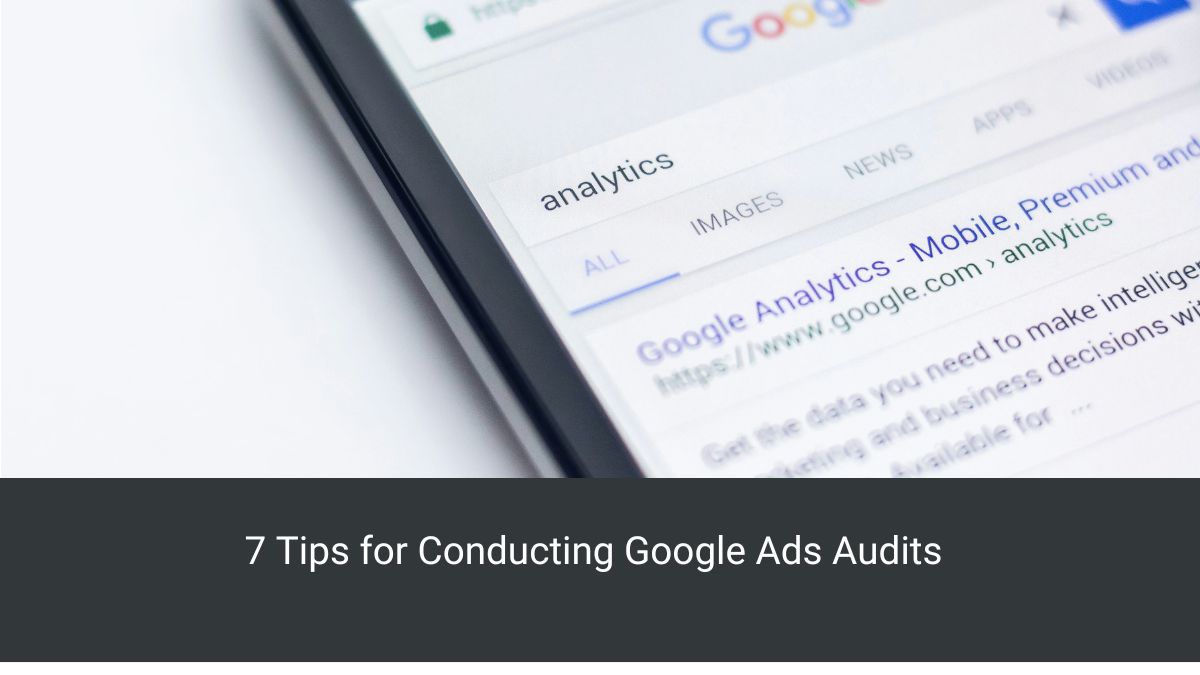Ad Tech
7 Tips for Conducting Google Ads Audits

Managing a Google Ads account involves constant adaptation and optimization. From adjusting bids to testing new features and refining targeting, the dynamic nature of PPC demands periodic audits to maintain effectiveness and uncover opportunities for improvement. Whether you’re aiming to boost conversions, lower CPA, or simply ensure everything is on track, a structured audit is essential. Here are seven crucial steps to guide you through the process:
1. Verify Conversion Tracking
The foundation of any Google Ads audit begins with ensuring accurate conversion tracking. Ask yourself: Do you trust your conversion data? Inaccurate tracking can mislead decisions and skew performance metrics. Start by checking if all conversions, including phone calls and chats, are properly tracked. Address any discrepancies and verify settings like counting conversions correctly based on business needs—whether it’s every conversion for e-commerce or unique conversions for lead generation.
2. Evaluate Impression Share
Impression share reveals how often your ads are displayed compared to potential opportunities. Assess whether lost impressions stem from budget constraints or low ad rank. Adjust budgets strategically to capitalize on profitable campaigns losing impressions due to budget limitations. Improve ad rank by optimizing bids, enhancing Quality Scores, and maximizing ad extensions to increase visibility in auctions.
3. Ensure Campaign Settings Consistency
Consistency in campaign settings ensures uniformity across your advertising efforts. Review settings such as language, location targeting, network preferences, and bid strategies. Identify outliers—campaigns with distinct settings that deviate from the norm—to investigate potential performance impacts. Address discrepancies to align all campaigns with overarching advertising goals and strategies.
4. Optimize Match Type Usage
Match types—broad, phrase, exact, and broad match modifier—affect how keywords trigger ads. Evaluate the performance of each match type against bid strategies. Adjust match types based on campaign objectives; for instance, prioritize exact match for precise targeting in conversion-focused campaigns. Regularly refine match type strategies to enhance ad relevance and improve overall campaign performance.
5. Review Ad Group Organization
Effective ad group organization enhances ad relevance and Quality Scores, influencing click-through rates and conversion rates. Evaluate ad groups with subpar performance or excessive keyword diversity. Ensure each ad group maintains keyword-ad synergy to optimize message delivery and user engagement. Streamline ad groups by consolidating similar keywords and creating targeted ad variations for improved performance.
6. Understand Responsive Search Ads (RSA) Performance
Responsive Search Ads (RSA) offer flexibility in ad creation, dynamically adjusting headlines and descriptions to optimize performance. Evaluate the effectiveness of pinned assets versus dynamic ad variations. Consider pinning assets strategically to control messaging or test multiple combinations to identify high-performing ad elements. Balance creative control with Google’s optimization capabilities to maximize ad relevance and engagement.
7. Monitor Change History and Account Activity
Active account management involves continuous optimization and responsiveness to market changes. Review change history logs to gauge the frequency and impact of recent adjustments. Assess the timeliness of bid changes, ad optimizations, and negative keyword updates. Identify opportunities for proactive management and align strategies with current performance trends to maintain campaign effectiveness.
Regular audits are pivotal in maintaining Google Ads account health and optimizing performance. By systematically reviewing conversion tracking, impression share, campaign settings, match type usage, ad group organization, RSA performance, and change history, advertisers can uncover insights, address inefficiencies, and capitalize on growth opportunities. Embrace audits as a strategic tool to refine advertising strategies, enhance ROI, and ensure long-term success in PPC campaigns.
Audit your Google Ads account today to unlock its full potential and achieve sustainable growth in digital advertising.
Remember, the key to successful PPC management lies in continual refinement and adaptation. Stay proactive, stay informed, and leverage audits as a means to stay ahead in the competitive landscape of online advertising.
—
This article guides you through essential steps to audit your Google Ads account effectively, offering actionable insights to enhance performance and achieve campaign goals. Whether you’re troubleshooting declining metrics or seeking optimization opportunities, these tips ensure thorough evaluation and strategic adjustments for success.
